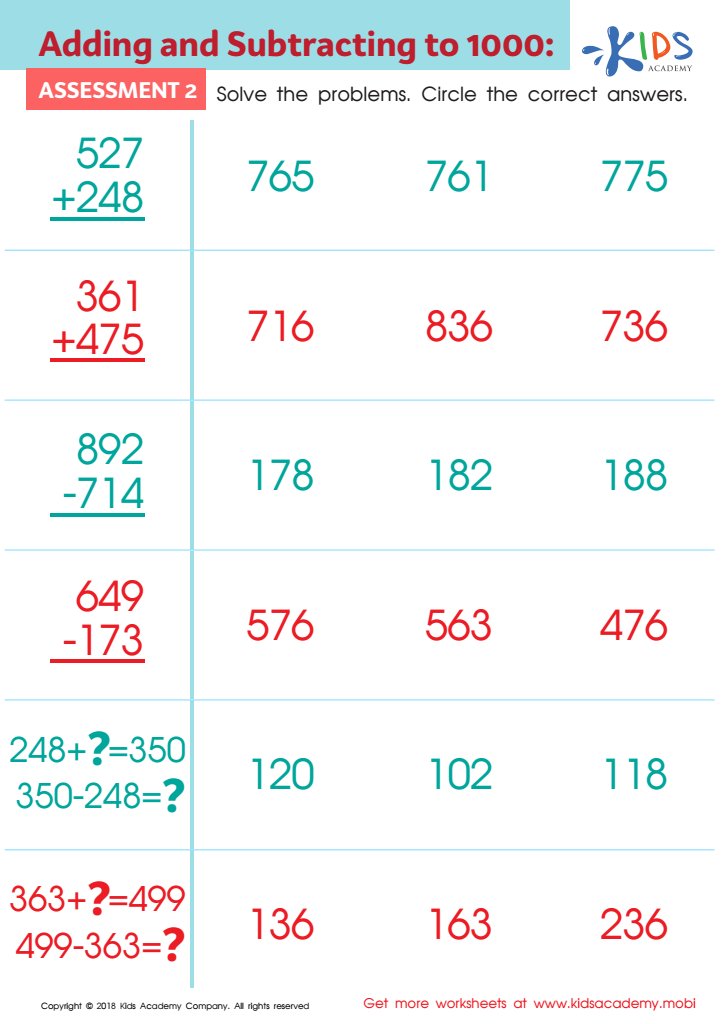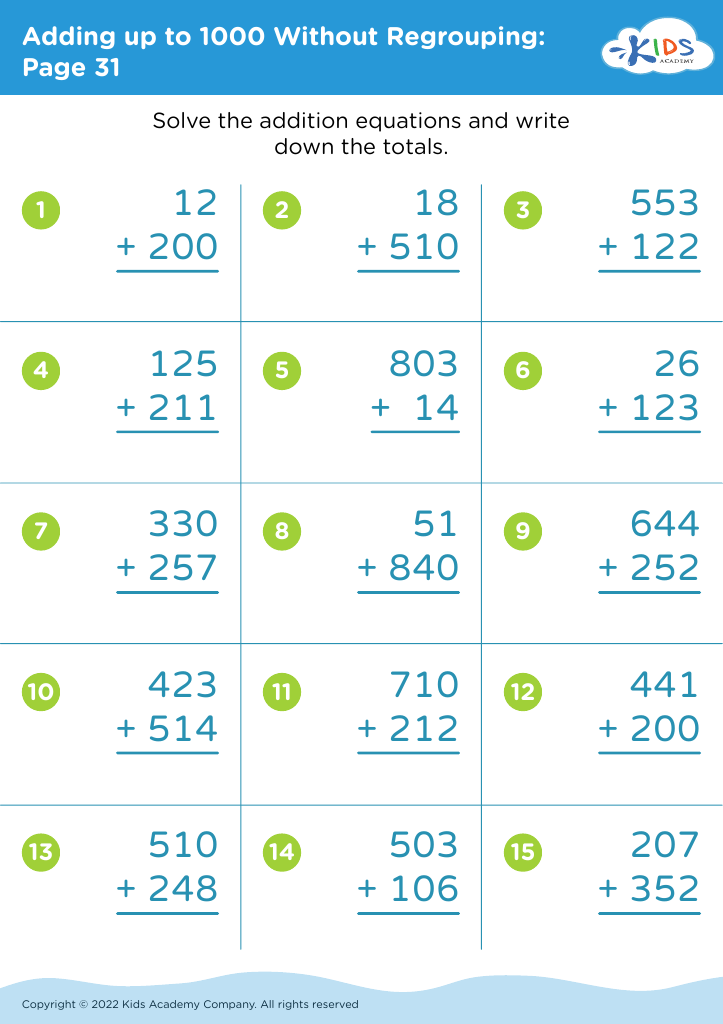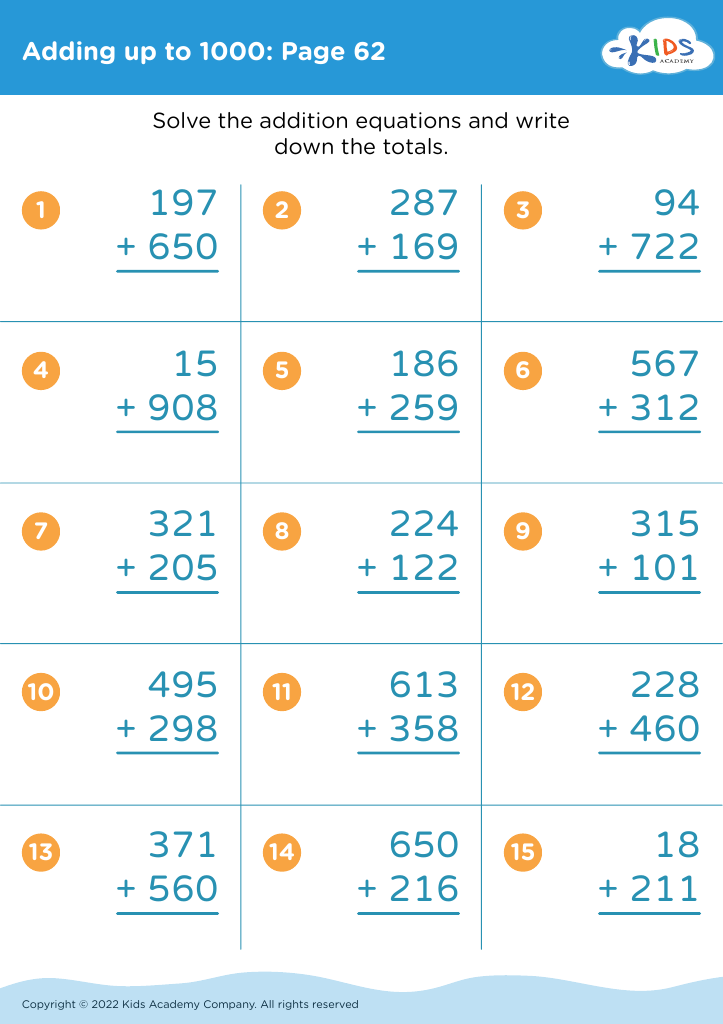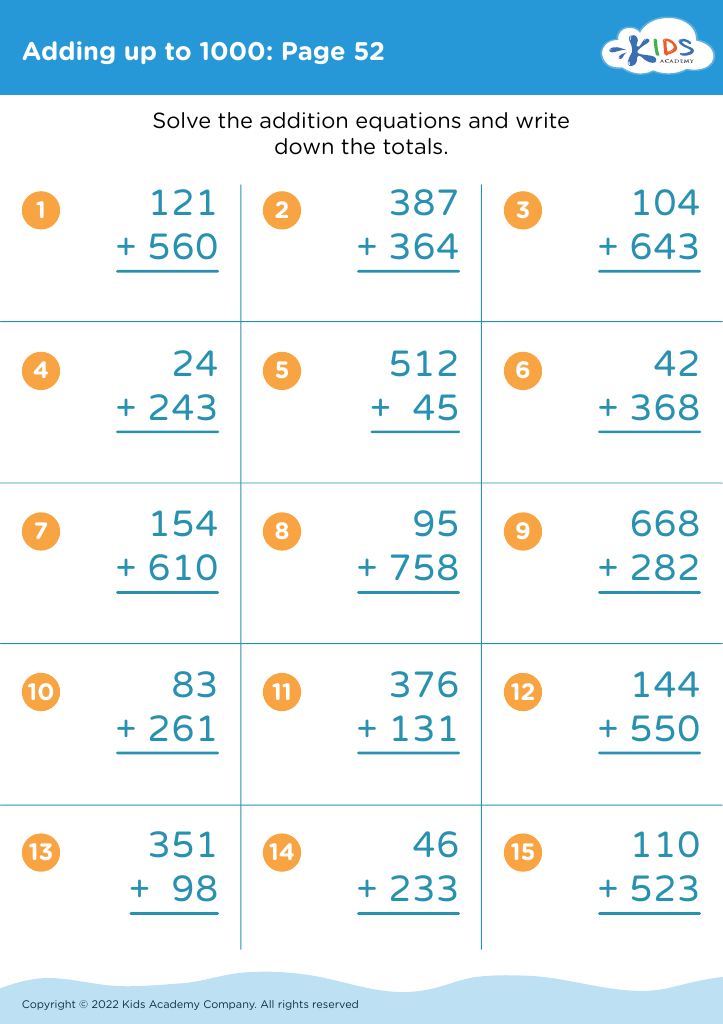Understand fractions Addition Worksheets for 9-Year-Olds
5 filtered results
-
From - To
Discover our engaging Understand Fractions Addition Worksheets designed specifically for 9-year-olds! These worksheets provide a fun and interactive way for young learners to grasp the concept of adding fractions. With visually appealing exercises and step-by-step guidance, children will develop their skills in identifying common denominators, simplifying fractions, and successfully adding them. Perfect for home or classroom use, our printable resources encourage critical thinking and problem-solving. Help your child build confidence in math while enjoying the process of learning! Explore our diverse array of worksheets to support your child's journey in mastering fractions addition today!


Adding and Subtracting to 1 Worksheet: Assessment 2
Understanding fractions and their addition is crucial for 9-year-olds as it lays the foundation for more advanced mathematical concepts. At this developmental stage, children begin to make sense of numbers and their relationships, which is pivotal not just in math but in everyday life.
Firstly, grasping fractions helps children comprehend parts of a whole, which is essential in contexts like cooking, dividing up space, or understanding money. This concrete understanding enables them to make informed decisions in practical scenarios.
Moreover, learning to add fractions enhances problem-solving skills. It nurtures critical thinking as children learn to find common denominators and simplify their answers. These skills are transferable, benefiting them in higher-level math and STEM subjects, which often require strong analytical abilities.
Furthermore, a solid foundation in fractions can boost a child's confidence in their mathematical abilities, reducing anxiety surrounding more complex operations in future grades. Encouraged by their parents and teachers, students who excel in fractions will likely develop a positive attitude towards math overall.
In summary, understanding fractions and their addition benefits children not only in their current curriculum but also in their day-to-day lives, making it a priority for educators and parents alike.

 Assign to My Students
Assign to My Students




















